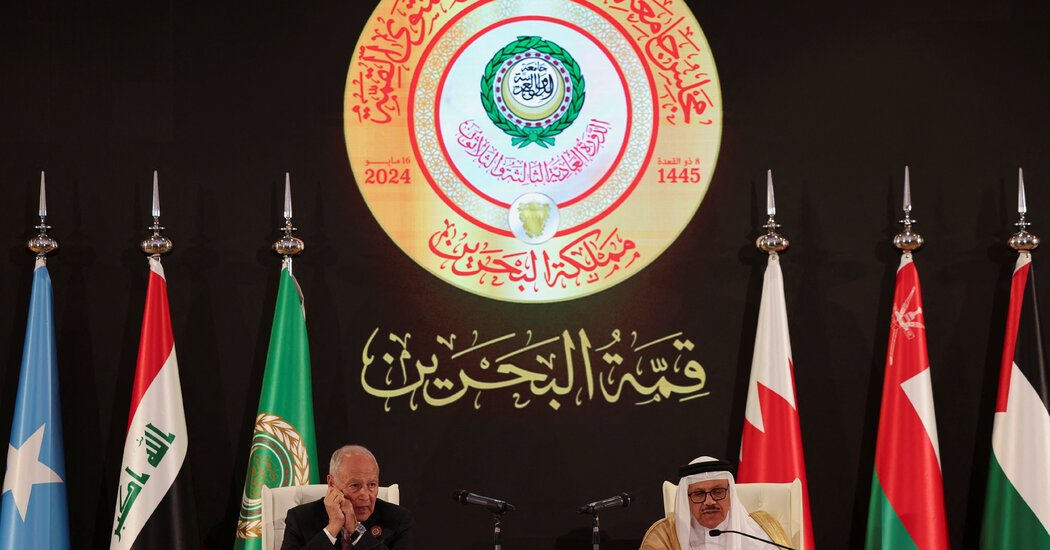The Arab League called on Thursday for a United Nations peacekeeping force to be deployed in the Gaza Strip and the Israeli-occupied West Bank until a two-state solution can be negotiated, in a statement that also called for the U.N. Security Council to set a time limit for that political process.
The notion of deploying U.N. peacekeepers into the Israeli-Palestinian conflicthas been mentioned occasionally by diplomats. But the Arab League’s statement appeared to be the first time the group had officially made such a request in a written document, according to Farhan Haq, a U.N. spokesman.
It’s unlikely that U.N. peacekeepers would be deployed to Gaza and the West Bank in the near future because sending U.N. peacekeepers into any conflict requires first the authorization of the Council. U.N. forces, which are typically drawn from the armed forces of multiple countries, do not enter live battle zones and do not engage in fighting. Both Israel and Hamas would also have to agree to having U.N. peacekeepers on the ground.
“There first has to be peace to keep,” Mr. Haq said. “We don’t go into active combat, and parties themselves have to agree on allowing the presence of peacekeepers. We don’t go in as an enemy force or an occupying force.”
The proposal came as part of a final statement issued by the league after its 22 members met on Thursday in Manama, Bahrain, a summit dominated by discussion about the war in Gaza.
In addition to calling for an immediate cease-fire and accusing Israel of obstructing those efforts, the Arab League called for “the deployment of United Nations international protection and peacekeeping forces in the occupied Palestinian territory until the two-state solution is implemented.”
The United Nations, Mr. Haq said, would be willing to take other measures called for by the Arab League, such as hosting or leading a conference toward peace and cease-fire in the conflict. But no definite plans have been discussed yet, he said.
Asked whether the United States would support the deployment of U.N. peacekeepers, a State Department spokesman, Vedant Patel, told reporters in Washington that bringing in “additional security forces” could potentially compromise Israel’s campaign to dismantle Hamas.
The Arab League’s statement, reported in Bahrain’s state news media, also reiterated the group’s position that a two-state solution should be based on the borders that were in place before the Arab-Israeli war of 1967. The group said that the Council should not only take “clear measures” toward implementing such a solution but also establish a time limit for doing so.
In an address to the summit on Thursday, António Guterres, the U.N. secretary general, said that a two-state solution was “the only permanent way to end the cycle of violence and instability.”
“The war in Gaza is an open wound that threatens to infect the entire region,” Mr. Guterres said, adding that “nothing” could justify the Hamas-led Oct. 7 attacks on Israel or the “collective punishment of the Palestinian people.”
The Arab League’s call for U.N. peacekeepers came amid fervent debate over how Gaza should be governed after the war. Negotiations over a cease-fire have been complicated by Israel’s ground invasion of Rafah. They were already stalled by staunch disagreements between Israel and Hamas over how long a truce should last and the terms of an exchange of hostages for Palestinian prisoners and detainees.


